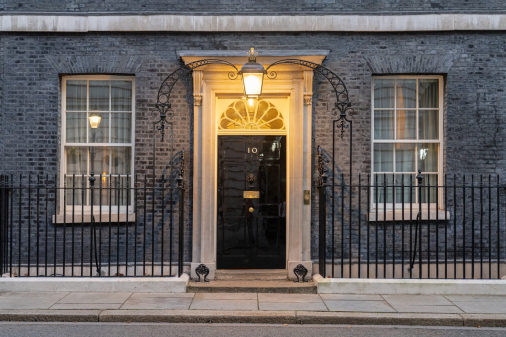
Prime Minister Keir Starmer has issued his 2025 Easter message, offering warm wishes to Christians across the UK and abroad, while praising the enduring message of Easter as one of “hope, redemption and renewal.”
“As Lent comes to an end and we move into the Easter weekend, I want to wish Christians everywhere remembering the death and celebrating the resurrection of Jesus Christ a very happy Easter,” the Prime Minister said. “The story of Easter is central to the Christian faith: it is a story of hope, redemption and renewal.”
In his message, Starmer paid tribute to the work of Christian communities across the country, particularly those who embody the teachings of Christ through grassroots acts of service.
“I also want to thank you for the ways in which you follow Christ’s example of love and compassion in serving your communities,” he said.
“Whether through night shelters, youth clubs, toddler groups, family support, care for the elderly or chaplaincy support, and in a multitude of other ways, you demonstrate steadfast commitment and care.”
While offering his Easter well-wishes, Starmer also took a moment to acknowledge persecuted Christians worldwide: “This Easter, as churches hold special services across the UK, and gather to celebrate with friends and family, we remember those Christians facing hardship, persecution or conflict around the world who cannot celebrate freely.”
Though not a believer himself and the UK’s first openly atheist Prime Minister, Starmer has previously expressed admiration for faith’s social and communal power.
In a 2021 interview with The Sunday Times Magazine, he said, “I am not of faith, I don’t believe in God — but I can see the power of faith and the way it brings people together.”
Meanwhile, King Charles III’s Easter message shared on Maundy Thursday drew mixed reactions.
Focusing on themes of love, humility and shared humanity, he said: “One of the puzzles of our humanity is how we are capable of both great cruelty and great kindness.
“This paradox of human life runs through the Easter story and in the scenes that daily come before our eyes — at one moment, terrible images of human suffering and, in another, heroic acts in war-torn countries where humanitarians of every kind risk their own lives to protect the lives of others.”
The King invoked Jesus’ act of foot-washing on Maundy Thursday as a symbol of boundless love and humility.
However, considering his position as Supreme Governor of the Church of England and ‘Defender of the Faith,’ it was his inclusive language - referencing Judaism, Islam, and other faiths - that drew criticism in some quarters.
“The love He showed when he walked the Earth reflected the Jewish ethic of caring for the stranger and those in need, a deep human instinct echoed in Islam and other religious traditions, and in the hearts of all who seek the good of others,” the King said.
Critics on social media questioned the appropriateness of bringing up other religions in a message earmarked for Christianity’s most sacred festival.
One commenter wrote, “Is this a joke?”
Another remarked, “Is he not the head of the Church of England? When it’s my son’s birthday I don’t wish my daughter happy birthday too [SIC]. Let Easter just be Easter.”
Such comments echo backlash to the King’s 2024 Christmas message, where he similarly implied that all religions are essentially identical.
That message was charged with promoting “syncretism” and “do-it-yourself, multi-faith religion.”
Despite the online criticism, the King and Queen have continued the centuries-old Maundy Thursday tradition, this year visiting Durham Cathedral to distribute Maundy money to 152 recipients — 76 men and 76 women, corresponding to the King’s age.
The recipients, selected from across the Diocese of Durham, the Province of Scotland, York and Wales, were honoured for their Christian service.
“Maundy Thursday is about remembering the service and sacrifice of Jesus and it will be so special to celebrate in such a memorable way those who live out the example of Jesus today,” stated Dean of Durham, The Very Rev Dr Philip Plyming.













